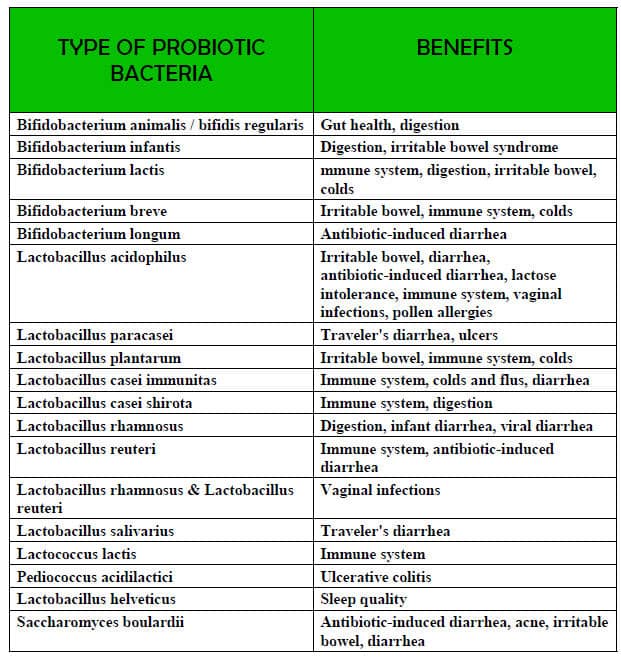It also seems that the media is finally starting to recognize what integrative physicians have been saying for years — helping maintain healthy bacterial balance in the gut has a positive effect on many aspects of health, and probiotics can be a key step.
Let's take a look at some probiotics basics, and the latest findings.
What Are Probiotics
According to the World Health Organization, probiotics are "live microorganisms which when administered in adequate amounts confer a health benefit on the host."
In general, probiotics are live bacteria — "good bacteria" — whose presence in your intestinal tract can help improve the function of the intestines, and protect again inflammation.
Probiotics are found in fermented foods, or in some cases, added to foods. The foods richest in probiotics, include:
- Yogurt - but avoid those with high fructose corn syrup, sugar, artificial sweeteners
- Kefir - a fermented yogurt-like drink
- Sauerkraut
- Miso soup - Japanese soup
- Kimchi - Korean pickled cabbage
- Pickles
- Kombucha - a tea-like probiotic drink
- Soft fermented cheeses (like Cheddar, Swiss, Parmesan and Gouda)
- Cottage Cheese (only those labeled "Live active cultures")
- Buttermilk
Many integrative physicians recommend including probiotic rich foods, and adding probiotic supplements, to your daily routine, for optimal health benefits.
The Health Benefits of Probiotics
A 2011 study at Yale University looked at probiotics, and found that they are can help treat the following health problems:
- childhood diarrhea
- ulcerative colitis
- necrotizing enterocolitis in infants
- preventing diarrhea when taking antibiotics
- eczema (due to cow's milk allergy)
- enhancing the immune system
There is also evidence that probiotics may be helpful for irritable bowel syndrome, Crohn's disease, vaginal yeast infections and vaginitis, diarrhea caused by the C. difficile bacteria, asthma, Type 1 diabetes, and in general, to enhance the immune system to help prevent common infectious illnesses such as colds and strep throat in children.
New research has identified more health benefits of probiotics:
Aiding in Weight Loss - Research from Vanderbilt University has shown that probiotic supplementation may aid in weight loss, and maintenance of that loss.
Treating Skin Issues/Acne - The American Academy of Dermatology (AAD) named probiotics one of this year's beauty breakthroughs. According to Dr. Whitney Bowe of the AAD: "There's accumulating evidence now showing that oral and topical probiotics can actually significantly benefit chronic skin conditions, including things like eczema, acne, and rosacea."
Treating High Blood Pressure - A study published in the journal Hypertension found that probiotics could reduce blood pressure modestly, and that additional trials may identify ways to enhance this impact.
One of the most important benefits of probiotics is as part of a therapy to heal a condition known as "leaky gut." Leaky gut is essentially an inflammation in the intestines, due to food sensitivities and/or bacterial imbalances. The inflammation allows larger proteins to pass through the intestinal lining and into the bloodstream, which then triggers inappropriate immune reactions, and increases the risk of autoimmune diseases.
We know that leaky gut is a risk factor for a variety of autoimmune diseases, including Hashimoto's thyroiditis, making probiotics an important part of the autoimmune treatment protocol for many patients.
Supplementing With Probiotics
When supplementing with probiotics, it's important to choose one that is fresh (check expiration dates), and delivers the type of live, active bacteria you need.
There are a number of brands available, Holtraceuticals UltraBiotics is our custom-developed probiotic supplement, which includes 20 billion+ live cultures per capsule, of the following bacteria:
- Lactobacillus acidophilus
- Lactobacillus paracasei
- Bifidobacterium bifdum
- Bifidobacterium lactis
- Lactobacillus plantarum
- Lactobacillus rhamnosus
- Saccharomyces boulardii
One Caution: If you have a significantly weakened immune system (i.e., undergoing chemotherapy, or taking immunosuppressive drugs), or have had your intestinal tract surgically removed, you should not supplement with probiotics unless advised by your doctor. (It's a good idea to always talk to your physician before starting any new supplement.) .
The following chart summarizes the various probiotic bacteria and the associated conditions they may help.



